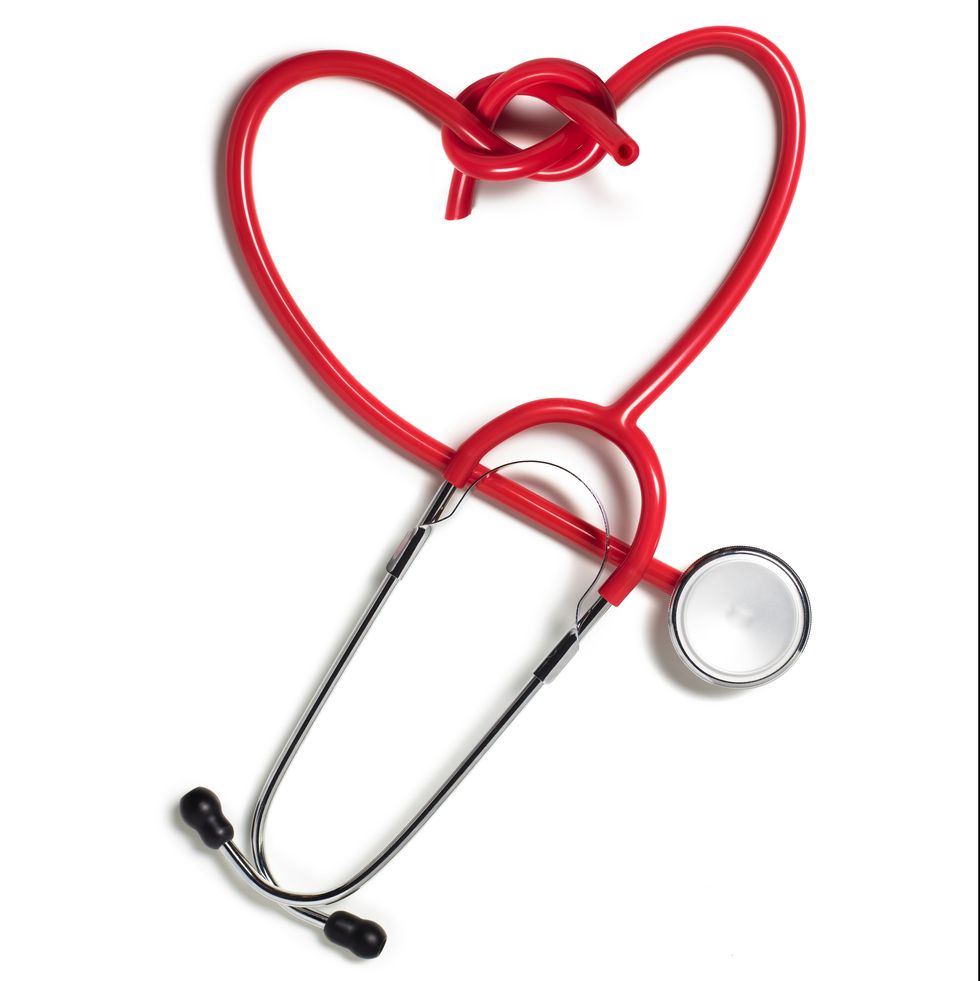Read real-life stories about medical mysteries and women who’ve been misdiagnosed—and find out how they’ve coped after finally getting the right treatment.
If you’ve ever sat in a doctor’s office and felt like your worries or aches weren’t being taken seriously—or were even dismissed—you’re in company that goes back literally thousands of years. Maybe longer.
Back in Ancient Greece, men believed a woman’s uterus could wander throughout her body, causing symptoms wherever it landed. Though we now know that’s far from fact, this early misdiagnosis—whether it was misogynistic or not—generated a word that has plagued women ever since. Women’s mysterious ailments were diagnosed as “hysteria,” derived from hystera, the Greek word for uterus.
“Hysteria” as a medical diagnosis should have disappeared at least as long ago as Hippocrates did, but of course, it lived on—and flourished. It appeared in medical texts for centuries, the definition evolving over time to eventually describe psychological issues in women. Doctors diagnosed hysteria through the early 20th century, and it wasn’t even dropped by the American Psychiatric Association as an official diagnosis until 1980, when the third edition of Diagnostic and Statistical Manual of Mental Disorders was published.
And despite the many medical advancements over the last several decades, some doctors still downplay women’s symptoms as if they’re being, well, hysterical. “I’ve had so many doctors dismiss my symptoms and say nothing is wrong with me,” says Amanda Magnus, a radio producer in North Carolina. First, a doctor blamed her year-long coughing fits and trouble breathing on standard seasonal allergies, when she really had asthma. Another doc later wrote her pneumonia off as an asthma flare-up, so she went three months without proper treatment. “After months of being sent home feeling hopeless, I finally got antibiotics and felt better within three days,” she says. ”It just sucks to hear that what you have is totally normal when you know something is wrong with your body.”
Similarly, Lisa Santacruz, a publicist in New York, experienced a shooting a pain in her hip so bad it brought her to her knees mid-jog, but her doctor shot down her requests for an MRI. “He said I probably pulled a muscle since I was overweight,” she says. “But I’ve been active my whole life and never experienced anything like this.” When she finally got that MRI from another doctor, she learned that she tore her labrum. “The tear kept getting deeper and deeper since it was left untreated, and now I’ll probably have hip problems for the rest of my life.”
To be fair, doctors are people, and people make mistakes all of the time. But research suggests women are more likely than men to be on the receiving end of medical mistakes—and the repercussions can be life-threatening. Compared to men, women are 50 percent more likely to receive the wrong diagnosis following a heart attack, according to a study from the University of Leeds in the UK; and 33 percent more likely to be misdiagnosed following a stroke, according to research published in Diagnosis.
Do doctors still think women are hysterical?
Some doctors harbor ingrained prejudices against women, and that it impacts their ability to provide proper care. Others are far more fair, but are still working within a system with institutional problems. So what’s at the root of why so many women struggle to walk out of doctors’ offices without knowing what’s really wrong with them? First, women are generally under-represented in medical research, accounting for less than a third of all subjects in heart disease studies, according to a George Washington University report. Similarly, twice as many women suffer from depression, but female animals make up less than half of preclinical studies, and a study published in the journal Cancer shows that women make up only 38 percent of cancer trials.
Why the disparity? “The underrepresentation of women in clinical research has complex roots,” says Reshma Jagsi, M.D., director of the Center for Bioethics and Social Sciences in Medicine at the University of Michigan, and author of the Cancer study. The desire to protect female fertility plays a role, she says, plus “there’s a deeply rooted concept that the 70kg white male is ‘normal’ and that women are deviations from that model.”
As you can imagine, this has major consequences for women’s health: “There are important biological differences between men and women that may lead to differences in, say, how drugs are metabolized,” Dr. Jagsi says. “Generalizing from studies conducted largely or exclusively in men to make treatment recommendations for women can be inappropriate—and downright dangerous.”
Still, Dr. Jagsi is optimistic about the future of medical research. “There’s growing awareness of the importance of including adequate numbers of women in clinical studies,” she says. But turning future research into in-office action will still be a slow process.
The three times you're most likely to be misdiagnosed
That’s why it’s so important to be your own advocate, especially when it comes to these particularly problematic scenarios.
When you’re having a heart attack
The classic image of a heart attack—severe pressure and tightness in the chest—is actually the classic male image of a heart attack.
“Women present heart attack symptoms differently than men do, and they’re often more subtle,” says Nieca Goldberg, MD, medical director of the NYU Langone Joan H. Tisch Center for Women’s Health. Common symptoms in women include shortness of breath, pressure in the chest (which could go away and come back), breaking out in a cold sweat, nausea, and exhaustion, which—yeah—can be confused for other conditions if you don’t know what to look for.
This creates two life-threatening problems for women: first, doctors are slow to diagnose heart attacks in women (see this woman who was almost sent home from the hospital), and second, women delay going to the hospital from the start. According to an American College of Cardiology study, women waited an hour on average before calling for help after a heart attack—and that hour makes a big difference when it comes to recovery.
“Some delay calling EMS because they’re Googling their symptoms,” Dr. Goldberg says. “If you think you’re having an acute heart attack, there’s no time for that.”
When you have an autoimmune disease
Women make up 75 percent of those suffering with an autoimmune disease, and it takes an average of five years to get a diagnosis, according to the American Autoimmune Related Diseases Association. (Yes, we said five years.)
“Symptoms of many autoimmune diseases are non-specific,” says Betty Diamond, MD, head, of the Center for Autoimmune, Musculoskeletal and Hematopoietic Diseases at the Feinstein Institute for Medical Research in Manhasset, NY. “Sometimes, you just don’t feel well or you’re experiencing aches and pains, so doctors want to see how your symptoms evolve before they scare you with a premature diagnosis, especially in an insurance landscape where you definitely don’t want a pre-existing condition.”
She’s right: Symptoms of autoimmune conditions like Crohn’s disease and celiac disease include stomach pain, bloating, and diarrhea; and symptoms of lupus include fatigue, joint pain, and rashes—all pretty vague.
That’s partially why it took Lisa five years to get a celiac disease diagnosis: “My doctor said I had irritable bowel syndrome, but the symptoms weren’t adding up,” she says. “I also had joint pain and anemia (which are associated with celiac disease), but doctors were treating each issue separately.” When she brought up celiac disease to her doc, he brushed it off, thinking she was hopping on the gluten-free bandwagon. “I was like, ‘trust me, I definitely don’t want to give up gluten—I’m Italian.’”
Years later, a colonoscopy and endoscopy revealed that she indeed had celiac disease, plus years of digestive tract damage. “I cried in my doctor’s office.” (She now has her celiac under control: “I don’t feel tired anymore, and I feel healthier in almost every area of my life,” she says.)
When you have a sex-specific condition
Similarly, a lot of gynecological conditions—like polycystic ovary syndrome (PCOS) and endometriosis (when the tissue that lines the uterus grows outside of the uterus)—have symptoms that overlap with other issues.
Nina Elias, a content marketing manager in Bethlehem, PA, was diagnosed with endometriosis after she saw her ob-gyn because she was spotting in between periods and experiencing pain during sex. “Based on those two symptoms, plus an inconclusive ultrasound, he diagnosed me with endometriosis, then handed me a pamphlet and sent me on my way,” she says. “All I knew about endometriosis was that I couldn’t have kids, and there was no counseling about how to manage my symptoms—how to make sex better or anything—so I was left to my devices in terms of how I wanted to handle it. I became depressed and gained 30 pounds.”
A year later (“the longest year of my life,” she says), Nina saw another gynecologist who told her the first doc was wrong. “Turns out, the bleeding was because of my thyroid, and the painful sex was because of all the anxiety,” she says. “It was a shitty time, but the whole experience taught me that it’s no longer acceptable for me to just be a patient. I need to do my own research.”
Women with PCOS also have negative experiences with their doctors: a recent Journal of the Endocrine Society study found that women with PCOS were less likely to trust their primary-care doctors and more likely to get in arguments with them, compared to those who didn’t have the condition. “There’s a strong hormonal imbalance that causes many different symptoms (weight gain, facial hair, fertility issues), and many doctors just aren’t familiar with the disease,” says Barbara Goff, MD, chair of obstetrics and gynecology at the University of Washington in Seattle.
Delayed diagnosis of gynecological cancers is also common, especially for ovarian cancer. “The symptoms of ovarian cancer often mimic those of irritable bowel syndrome or ingestion, or they’re attributed to menopause,” Dr. Goff says.
Another problem: “Women are accustomed to cycles of not feeling well,” she says. “We have bloating and pain every month, then it all goes away and we feel better. We’re used to waiting it out.” To be clear, you should not wait it out if you’re experiencing any of the symptoms of ovarian cancer. “And know that it’s not normal to bleed after menopause,” Dr. Goff says.
How to avoid becoming another victim of misdiagnosis
The non-specificity of some of these symptoms make it all too easy to brush off women as being “dramatic.” Sadly, this is according to real research: an Autoimmune Diseases Association survey shows that almost half of women with an autoimmune disease were first labeled “chronic complainers.” “Lots of women are told to see a psychiatrist in the early stages of their illness,” Dr. Diamond says.
This isn’t exclusive to autoimmune diseases, either. Heart attacks in women can look strikingly similar to panic attacks since chest pain, shortness of breath, and sweating could surface in both situations, according to the Anxiety and Depression Association of America.
Consider this case study published in the Journal of Emergency Medicine: a woman went to the ER, originally thinking that she was having a nervous breakdown caused by an earlier argument with her boyfriend. Tests eventually showed that she had a tear in her aorta. “Call 911 even if you aren’t sure,” Dr. Goldberg says.
The experts we spoke to say there are several steps you can take to ensure you receive an accurate diagnosis—quickly:
Don’t be a passive patient
Both doctors and women who have been there agree: doing your own research is crucial. “My new doctor is wonderful, but I still do my own research, especially on any supplements and natural remedies,” Nina says. Dr. Diamond confirms this is good practice: “Do your own research, then discuss your findings with your doctor,” she says. “And don’t leave the office until your questions are answered.”
Get a second opinion
Amanda first started seeing a naturopathic doctor to help with a thyroid condition, and she returned when she had problems breathing. “I was skeptical at first, but I was so tired of hearing ‘there’s nothing we can do,’ from everyone else,” she says. “He suggested some supplements, and I actually started to feel better.” She didn’t stop seeing conventional docs, though: “My naturopathic doctor complemented the asthma specialist I saw,” she says. “They knew each other professionally and respected each other's work.”
Bring up everything that’s bothering you
“Women are taught to pooh-pooh their own symptoms, but it’s important to bring everything to your doctor’s attention,” Dr. Goff says. “If you have a problem that persists for two to three weeks, I need to know about it.” Not only because it probably won’t go away on its own, but because some seemingly separate symptoms could be linked to the same root cause. “Women often attribute symptoms to getting older or going through menopause, but it's important to mention anything that deviates from your normal,” Dr. Goff says.















